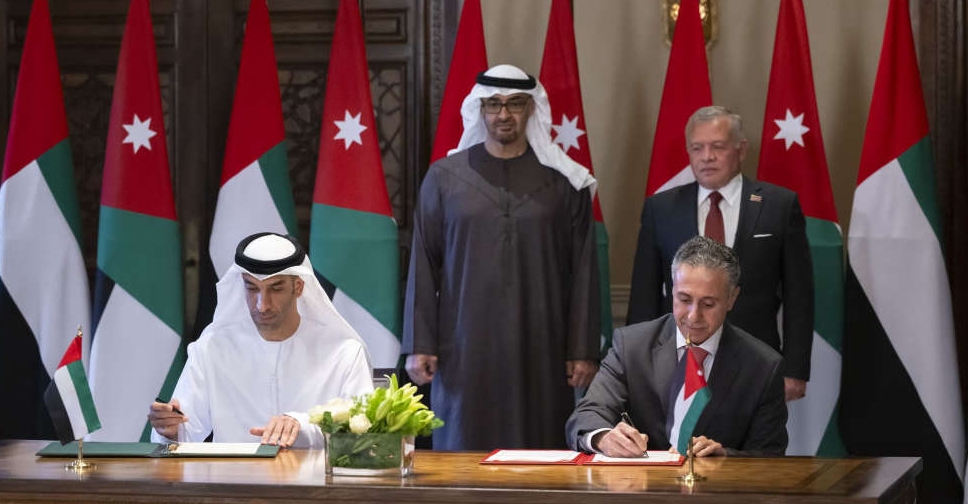
President His Highness Sheikh Mohamed bin Zayed Al Nahyan witnessed the signing a Comprehensive Economic Partnership Agreement (CEPA) with Jordan on Sunday.
The deal is set to reduce trade restrictions and non-tariff measures on commodities and services, and is expected to boost bilateral trade to exceed $8 billion (AED 29 billion) by 2032.
The CEPA is expected to fostering opportunities across multiple sectors including renewable energy, industrial projects, manufacturing, transport, pharmaceuticals, and food processing.
During a ceremony held at Basman Palace in Amman, the agreement was signed by Minister of State for Foreign Trade, Dr. Thani bin Ahmed Al Zeyoudi and Jordan’s Minister of Industry, Trade and Supply, Yarub Falah Al-Qudah.
“The agreement will come into effect later this year after its ratification, and will mark the culmination of a long-standing, deep-rooted relationship between the two brotherly countries and their peoples,” Al Zeyoudi said.
He added that the agreement offers further growth opportunities for businesses, young entrepreneurs, and start-ups in both countries and will boost bilateral trade to exceed $8 billion (AED 29 billion) by 2032, fulfilling the ambitions and interests of the two nations.
The deal builds on robust UAE-Jordan economic ties, with non-oil trade reaching over $4.2 billion (AED 15.4 billion) in 2023. In the first half of 2024, non-oil trade between the two countries amounted to $2.7 billion (AED 9.9 billion), reflecting a growth of 36.8 per cent compared to the same period in 2023.
Jordan is currently the UAE’s third-largest Arab trade partner outside of the GCC. Meanwhile, the UAE is Jordan’s top foreign investor, with mutual investment between the two countries estimated to be approximately $22.5 billion (AED 80 billion).
The UAE’s CEPA programme is a key pillar of the country’s economic growth strategy aimed at deepening and expanding trade ties with nations around the world by reducing barriers to trade, enhancing market access, and facilitating increased private sector collaboration and investment.


 Netflix shares jump as subscribers surge
Netflix shares jump as subscribers surge
 Economy Minister highlights UAE's business ecosystem at Davos 2025
Economy Minister highlights UAE's business ecosystem at Davos 2025
 ADNOC Distribution expands service station solar power project
ADNOC Distribution expands service station solar power project
 Emirates cancels Houston flights due to severe weather
Emirates cancels Houston flights due to severe weather
